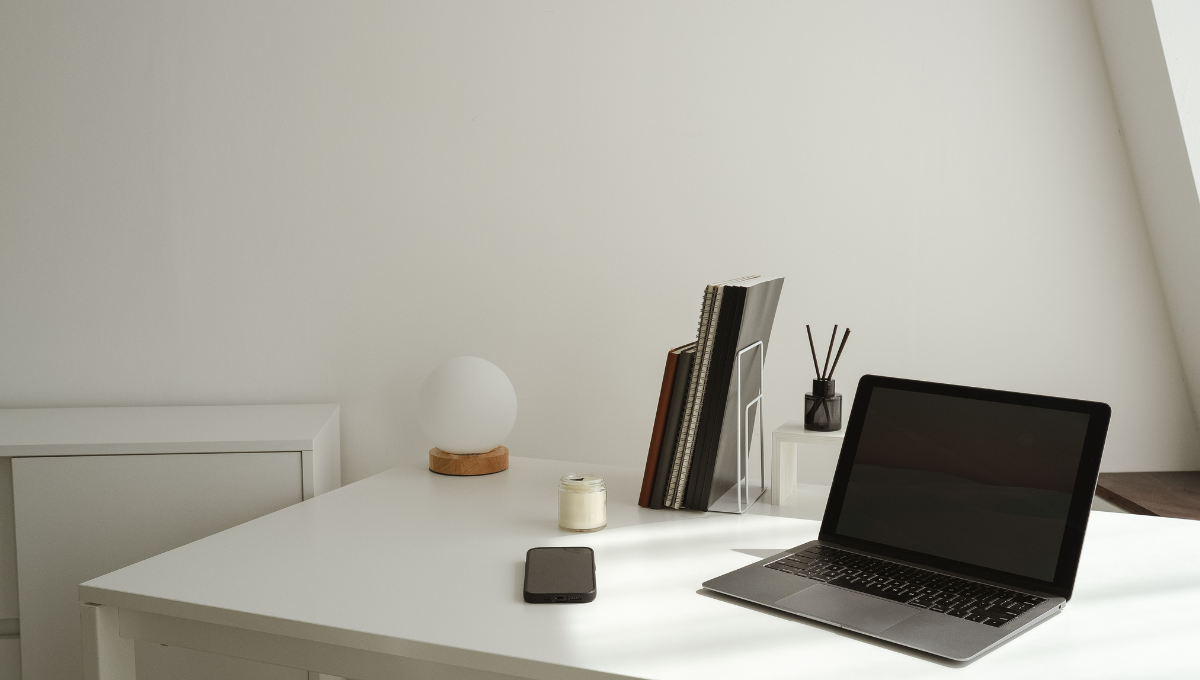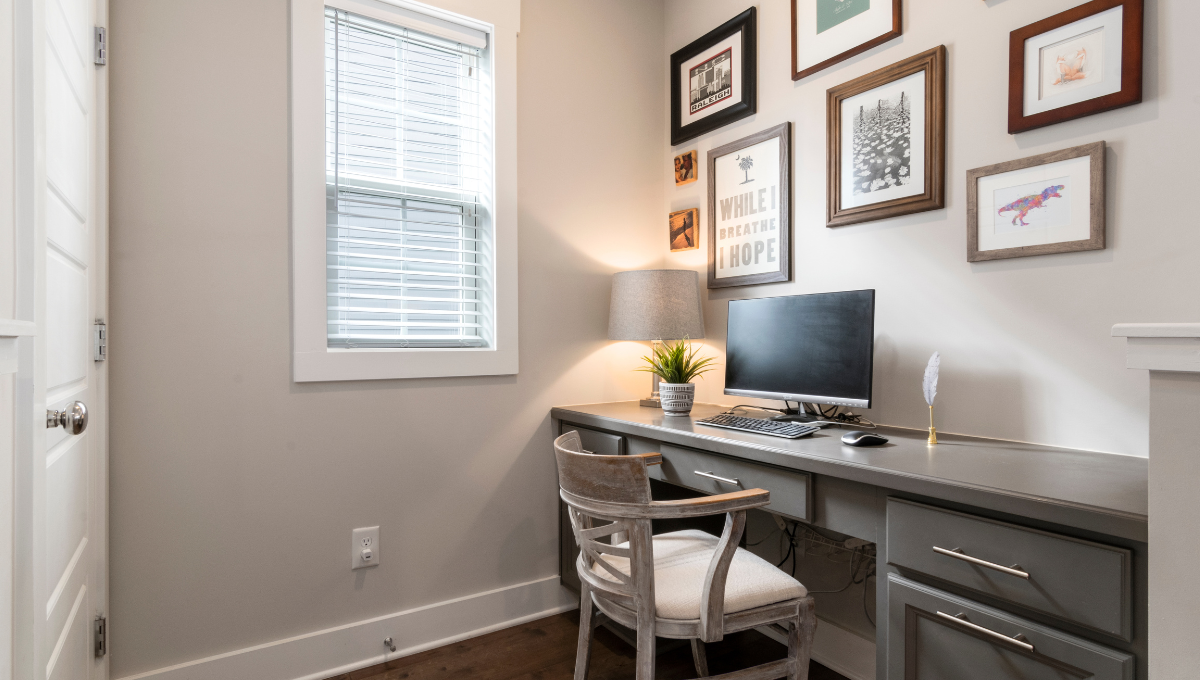Working from home has become very common now. Many people are doing their jobs from the comfort of their house. But sometimes, it’s hard to focus when there is too much noise or not enough space. That’s why more people are turning their basements into home offices. It’s quiet, private, and separate from the rest of the house.
A basement may not sound like the best place at first. But with the right plan, it can turn into a cozy and functional office. This guide will share some easy basement home office ideas that anyone can follow. Whether your space is big or small, a nice work area can be made with a few smart changes.
Start by Cleaning and Checking the Space
Before anything is done, the basement should be cleaned out. Old boxes and things not being used should be moved. Once the area is empty, the walls, ceiling, and floor should be checked for water damage, mould, or cracks. Any problem should be fixed first. A dry and safe basement is very important for a good home office.
Lighting is also checked during this step. Most basements don’t have much sunlight, so extra lights will be needed later. But don’t worry. With a good plan, even a dark room can be made to feel bright and welcoming.
Plan the Layout That Works Best
Now it’s time to think about how the office will be used. Will it be used every day or just sometimes? Will meetings be done there, or is it just for writing and reading? Once these questions are answered, it becomes easier to plan where the desk, chair, and shelves will go.
For a small basement, using the corners is a smart idea. A wall-mounted desk can also save space. If the area is big, a full L-shaped desk may work better. Some people also divide the basement into zones—for example, one side for work and the other for storage or relaxing.
Keep the Design Simple and Clean
It’s best to keep the home office neat and not too crowded. A clean look helps the brain feel calm. Light-coloured walls like soft white, beige, or light grey can make the space feel bigger and brighter. Paint that resists moisture is a good choice for basements.
Furniture should be chosen for comfort and function. A strong desk and an adjustable chair can make long hours feel easier. Open shelves and simple cabinets keep things tidy and within reach. Adding a rug or soft flooring can help the room feel warmer.
Make the Lighting Work for You
Since most basements do not have big windows, lighting must be added. A mix of ceiling lights, table lamps, and wall lights works well. LED lights are bright, last longer, and save energy. A desk lamp that can be moved around is great for focused work.
Some people add mirrors to reflect light and make the room feel more open. If there is a small window, it should be kept clean and clear to let in as much light as possible. Natural light, even if small, always helps.
Add Personal Touches That Inspire
An office should not be boring. Even a basement office can feel nice and personal. Adding art, plants, or a small bookshelf brings life into the space. A noticeboard or wall calendar can help with planning.
Some people like to use colour in small ways—maybe a bright chair or colourful files. Photos of loved ones or favourite places can make the office feel peaceful. These small things matter and help make the space enjoyable to work in.
Think About Sound and Temperature
Basements can be quiet, which is good for focus. But sometimes, outside noise or sounds from upstairs can be heard. A rug, curtains, and soundproof panels can help reduce noise. If phone calls or video meetings are often done, a quiet space is a must.
Basements are also cooler than other parts of the house. In winter, a small heater might be needed. In summer, it can feel damp, so a dehumidifier is helpful. With the right setup, the temperature can stay just right all year.
Make Sure You Have Good Internet
Strong internet is important for any home office. In some basements, the Wi-Fi signal is weak. This can be fixed with a Wi-Fi booster or mesh system. Some people also use a wired internet connection with an Ethernet cable for better speed.
Power outlets should be checked too. Enough plugs for the computer, printer, lamp, and phone charger are needed. A power bar with surge protection is a safe and smart choice.
Stay Organized with Smart Storage
A messy office makes it hard to focus. Even in a basement, things can be stored neatly. Use shelves, cabinets, and bins to hold papers, files, and supplies. Labels on boxes make things easy to find.
A filing cabinet or storage ottoman with a lid can also save space. Pegboards or hooks on the wall can hold small items like scissors or headphones. When everything has a place, it’s easier to keep the space clean.
Enjoy the Quiet and Focus
One big benefit of a basement office is the quiet. It feels far from the busy parts of the house. Kids playing, dishes clinking, or TV noise won’t reach down there as easily. That makes it easier to focus, join meetings, or think clearly.
Some people even use soft background music or white noise to block out sound. Others enjoy the quiet as it is. Either way, a basement office offers a calm place to work, and that’s something many people want.
The Cost Can Be Worth It
Turning a basement into a home office may cost a little at first. Painting, furniture, lighting, and fixing moisture problems are common parts of the cost. But the long-term benefits are clear. A better work setup can make someone more productive, less stressed, and happier at home.
Doing the work yourself can save money. But hiring help for things like electricity, drywall, or flooring might be a smart idea. It depends on the budget and how big the changes are. Either way, the result is worth it for most people.
Why More People Are Doing It
Since remote work is growing, many homes are being changed to fit new needs. A kitchen table or bedroom corner doesn’t always feel right for working. That’s why basement home office ideas are becoming popular.
A separate work zone helps the mind focus. When the day ends, it’s easier to walk away and relax. That balance between work and home life matters. And it can be done in the space already there—just downstairs.
In Summary: A Quiet Office Below Your Feet
Turning a basement into a home office is a smart move for many people. It gives peace, privacy, and a fresh space to think. With the right changes, it feels just as good as any other room in the house.
You don’t need fancy tools or big budgets. Just a good plan, clean space, and a few updates can make all the difference. These simple basement home office ideas can work for any home, big or small.




